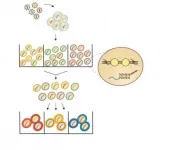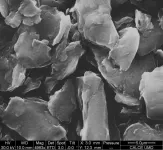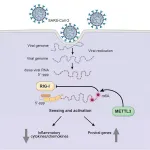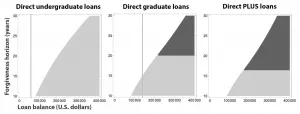INFORMATION:
Find all the details of this study in the journal Circulation Research.
Other contributors to this work include Huanan Shi, Bojun Zhang, Taylor Abo-Hamzy, James W. Nelson, Chandra Shekar R. Ambati, Joseph F. Petrosino and Robert M. Bryan, all at Baylor College of Medicine.
This work was supported by Public Health grants (RO1HL134838, R01NS102594 and DK56338), NIH grant P30DK056338, CPRIT Core Facility Support Award RP170005, NCI Cancer Center Support Grant P30CA125123, intramural funds from the Dan L. Duncan Cancer Center, and National Cancer Institute Cancer Center Support Grant P30CA125123.
Fasting lowers blood pressure by reshaping the gut microbiota
2021-04-29
(Press-News.org) Nearly half of adults in the United States have hypertension, a condition that raises the risk for heart disease and stroke, which are leading causes of death in the U. S.
At Baylor College of Medicine, Dr. David J. Durgan and his colleagues are dedicated to better understand hypertension, in particular the emerging evidence suggesting that disruption of the gut microbiota, known as gut dysbiosis, can have adverse effects on blood pressure.
"Previous studies from our lab have shown that the composition of the gut microbiota in animal models of hypertension, such as the SHRSP (spontaneously hypertensive stroke-prone rat) model, is different from that in animals with normal blood pressure," said Durgan, assistant professor of anesthesiology at Baylor.
The researchers also have shown that transplanting dysbiotic gut microbiota from a hypertensive animal into a normotensive (having a healthy blood pressure) one results in the recipient developing high blood pressure.
"This result told us that gut dysbiosis is not just a consequence of hypertension, but is actually involved in causing it," Durgan said. "This ground work led to the current study in which we proposed to answer two questions. First, can we manipulate the dysbiotic microbiota to either prevent or relieve hypertension? Second, how are the gut microbes influencing the animal's blood pressure?"
Can manipulating the gut microbiota regulate blood pressure?
To answer the first question, Durgan and his colleagues drew on previous research showing that fasting was both one of the major drivers of the composition of the gut microbiota and a promoter of beneficial cardiovascular effects. These studies, however, had not provided evidence connecting the microbiota and blood pressure.
Working with the SHRSP model of spontaneous hypertension and normal rats, the researchers set up two groups. One group had SHRSP and normal rats that were fed every other day, while the other group, called control, had SHRSP and normal rats with unrestricted food availability.
Nine weeks after the experiment began, the researchers observed that, as expected, the rats in the SHRSP control had higher blood pressure when compared to the normal control rats. Interestingly, in the group that fasted every other day, the SHRSP rats had significantly reduced blood pressure when compared with the SHRSP rats that had not fasted.
"Next, we investigated whether the microbiota was involved in the reduction of blood pressure we observed in the SHRSP rats that had fasted," Durgan said.
The researchers transplanted the microbiota of the rats that had either fasted or fed without restrictions into germ-free rats, which have no microbiota of their own.
Durgan and his colleagues were excited to see that the germ-free rats that received the microbiota of normally fed SHRSP rats had higher blood pressure than the germ-free rats receiving microbiota from normal control rats, just like their corresponding microbiota donors.
"It was particularly interesting to see that the germ-free rats that received microbiota from the fasting SHRSP rats had significantly lower the blood pressure than the rats that had received microbiota from SHRSP control rats," Durgan said. "These results demonstrated that the alterations to the microbiota induced by fasting were sufficient to mediate the blood pressure-lowering effect of intermitting fasting."
How the microbiota regulates blood pressure
The team proceeded to investigate the second question of their project. How does the gut microbiota regulate blood pressure?
"We applied whole genome shotgun sequence analysis of the microbiota as well as untargeted metabolomics analysis of plasma and gastrointestinal luminal content. Among the changes we observed, alterations in products of bile acid metabolism stood out as potential mediators of blood pressure regulation," Durgan said.
The team discovered that the SHRSP hypertensive animals that were fed normally had lower bile acids in circulation than normotensive animals. On the other hand, SHRSP animals that followed an intermittent feeding schedule had more bile acids in the circulation.
"Supporting this finding, we found that supplementing animals with cholic acid, a primary bile acid, also significantly reduced blood pressure in the SHRSP model of hypertension," Durgan said.
Taken together, the study shows for the first time that intermittent fasting can be beneficial in terms of reducing hypertension by reshaping the composition of gut microbiota in an animal model. The work also provides evidence that gut dysbiosis contributes to hypertension by altering bile acid signaling.
"This study is important to understand that fasting can have its effects on the host through microbiota manipulation," Durgan said. "This is an attractive idea because it can potentially have clinical applications. Many of the bacteria in the gut microbiota are involved in the production of compounds that have been shown to have beneficial effects as they make it into the circulation and contribute to the regulation of the host's physiology. Fasting schedules could one day help regulate the activity of gut microbial populations to naturally provide health benefits."
ELSE PRESS RELEASES FROM THIS DATE:
Suppressing the impact of COVID-19 using controlled testing and isolation
2021-04-29
The outbreak of COVID-19 has revealed the widespread effects a pandemic can have on all spheres of life from health, to social life, to the economy. The main thrust of efforts to control the spread has been to decrease the reproduction rate to flatten the curve of the total number of infected individuals per day in order to reduce overload on the health system. The most widely implemented response to the exponential growth of the infection has been widespread quarantine and lockdown. While isolation is an effective tool to decelerate the spread, repeatedly imposing complete ...
Implementing Industry 4.0 in SMEs by focusing on the customer
2021-04-29
Small and medium-sized manufacturing enterprises (SMEs) face many obstacles and difficulties (economic, technical, cultural, etc.) when it comes to implementing Industry 4.0. "These are transition processes that are economically costly, and in which SMEs often come up against technical and cultural problems, as they are not cognizant of how to make this transition, or of the benefits their companies stand to gain by implementing Industry 4.0," explained the UPV/EHU pre-doctoral researcher Víctor Ramírez-Durán.
While several pieces of work address the incorporating ...
Single-cell CRISPR technology deciphers role of chromatin accessibility in cancer
2021-04-29
NEW YORK, NY (April 29, 2021) - In a new resource for the scientific community, published today in Nature Biotechnology, researchers in the lab of Neville Sanjana, PhD, at the New York Genome Center (NYGC) and New York University (NYU) developed CRISPR-sciATAC, a novel integrative genetic screening platform that jointly captures CRISPR gene perturbations and single-cell chromatin accessibility genome-wide. With this technology, they profile changes in genome organization and create a large-scale atlas of how loss of individual chromatin-altering enzymes impacts the human genome. The new method harnesses the programmability of the gene editing system CRISPR to knock-out ...
Exploring extremes -- When is it too hot to handle
2021-04-29
Exploring extreme environments can put significant operational challenges on the engineering systems we depend upon to safely explore and at times operate within.
Within high-value and safety-critical applications, such as space exploration or sub-surface drilling, the extreme and at times dynamic operating conditions within the environment, can make it challenging to understand the life expectancy of critical components and sub-systems. Hence, it's a highly complex and at times impossible situation to accurate understand therefore predict.
To have safe, resilient and economically viable operations within these challenge environments, it is vital ...
How SARS-CoV-2 hijacks human cells to evade immune system
2021-04-29
Researchers at University of California San Diego School of Medicine have discovered one way in which SARS-CoV-2, the coronavirus that causes COVID-19, hijacks human cell machinery to blunt the immune response, allowing it to establish infection, replicate and cause disease.
In short, the virus' genome gets tagged with a special marker by a human enzyme that tells the immune system to stand down, while at the same time ramping up production of the surface proteins that SARS-CoV-2 uses as a "doorknob" to enter cells.
The study, published April ...
Finding the optimal way to repay student debt
2021-04-29
The burden of student loans in the U.S. continues to grow unabatedly, currently accounting for a total of $1.7 trillion in household debt among nearly 45 million borrowers. "The introduction of income-based repayment over the past decade has made student loans rather complicated products," Paolo Guasoni of Dublin City University said. As borrowers navigate this complex process, they face long-term consequences; people with student debt are less likely to own homes or become entrepreneurs, and generally postpone their enrollment in graduate or professional studies. Though legislative reform is necessary to combat this problem on a grand scale, individual borrowers can take steps to ...
New optical hydrogen sensors eliminate risk of sparking
2021-04-29
Hydrogen as a clean, renewable alternative to fossil fuels is part of a sustainable-energy future, and very much already here. However, lingering concerns about flammability have limited widespread use of hydrogen as a power source for electric vehicles. Previous advances have minimized the risk, but new research from the University of Georgia now puts that risk in the rearview mirror.
Hydrogen vehicles can refuel much more quickly and go farther without refueling than today's electric vehicles, which use battery power. But one of the final hurdles to hydrogen power is securing a safe method for detecting hydrogen leaks.
A new study published in Nature Communications documents an inexpensive, spark-free, optical-based hydrogen sensor that is more sensitive ...
NSU researcher part of a flagship study on vertebrate genomes
2021-04-29
Study Take-Aways
Unprecedented novel discoveries have implications for characterizing biodiversity for all life, conservation, and human health and disease.
o This finding provides novel avenues of research to increase immune defenses, particularly relevant for emerging infectious diseases, such as the current COVID-19 pandemic.
The flagship paper presented whole genome sequence analyses of 16 vertebrate species to illustrate high quality, near error free, near complete, low cost reference genome assemblies.
o Though near 400 species have been sequenced at some level, the quality today reflects ...
Alzheimer's disease is composed of four distinct subtypes
2021-04-29
Alzheimer's disease is characterized by the abnormal accumulation and spread of the tau protein in the brain. An international study can now show how tau spreads according to four distinct patterns that lead to different symptoms with different prognoses of the affected individuals. The study was published in Nature Medicine.
"In contrast to how we have so far interpreted the spread of tau in the brain, these findings indicate that tau pathology in the brain varies according to at least four distinct patterns. This would suggest that Alzheimer's is an even more heterogeneous disease than previously thought. We now have reason to reevaluate the concept of typical Alzheimer's, and in the long ...
More stringent public health measures associated with lower COVID-19 cases, deaths
2021-04-29
As state and local policymakers and politicians made the decision to enact stay-at-home orders last March in response to the coronavirus pandemic, a recent study found that more stringent public health measures put in place directly correlated with lower virus case numbers during the first two months of the pandemic.
The study, "More Stringent Measures Against Covid-19 Are Associated With Lower Cases and Deaths in Florida and Miami-Dade," was recently published in the American Journal of Emergency Medicine.
Utilizing The New York Times' GitHub repository of cases and deaths and the COVID-19 Government Response Stringency Index developed by Oxford University's Blavatnik School of Government for the ...




